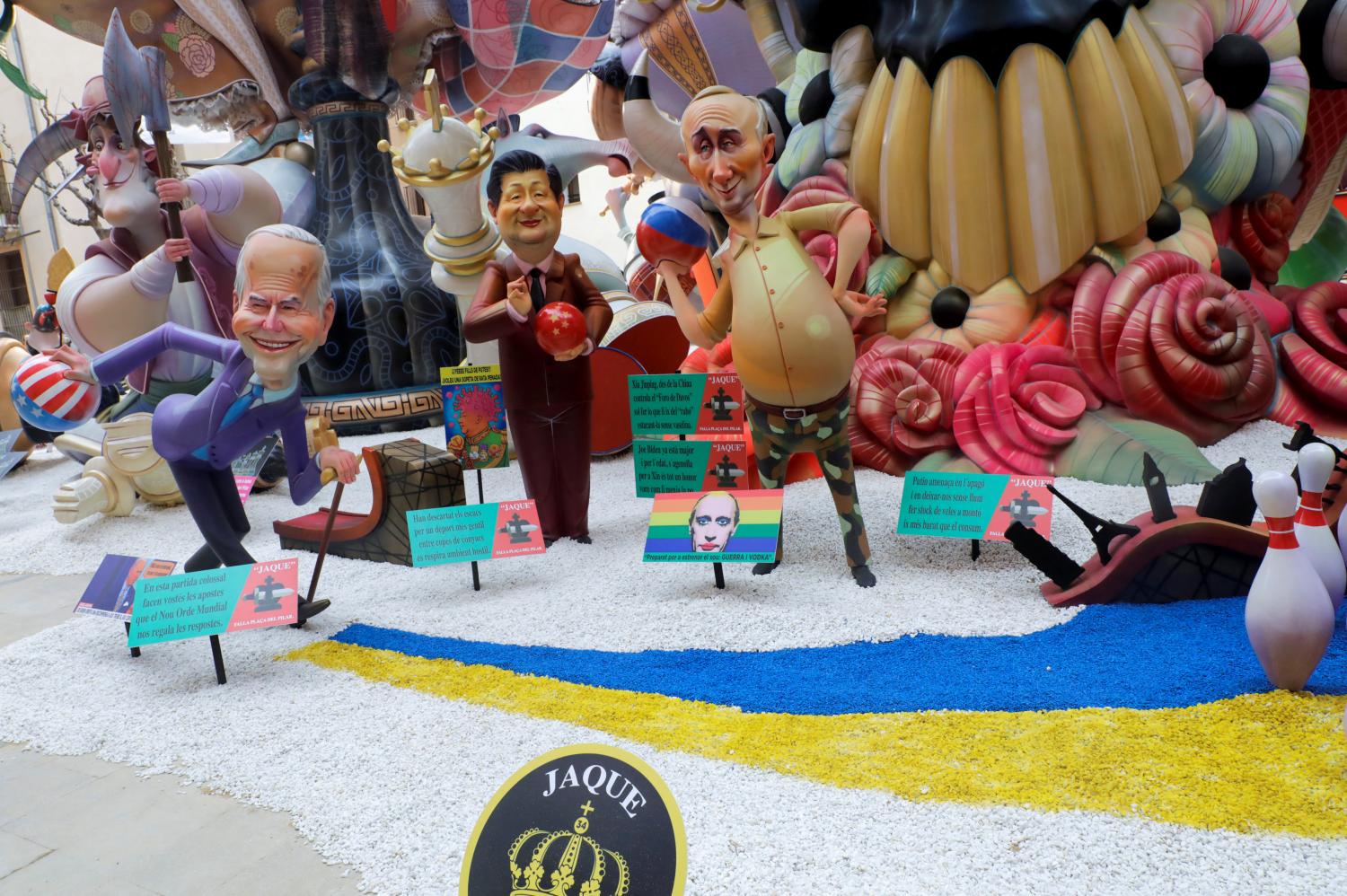
While Russia's profound and transformational invasion of Ukraine on Feb 24 has fundamentally reshaped and reinforced contentious trends and contours in the geopolitics and geoeconomics of Asia, it did not set out a new direction in world politics. The international system had already been unravelling over the past decade, underpinned by the United States-China geostrategic rivalry and competition. Given deteriorating patterns and trends, the international environment is entering dangerous territory where what seemed unthinkable not long ago may soon appear to be very conceivable indeed.
Prior to President Vladimir Putin's "special military operation", international confidence and working trust among states had been conspicuously sliding, gripped and shaken by the US-China confrontation, pitting Washington's assertive Indo-Pacific strategy under former and current presidents Donald Trump and Joe Biden against China's ambitious Belt and Road Initiative under President Xi Jinping. The pandemic in 2020-21 exacerbated the geostrategic tensions between the two superpowers because each handled Covid-19 its own way with separate and mutually exclusive approaches and means, especially in vaccine development and dissemination.
By early this year, the US had fully reopened its economy and re-emerged, while China's borders remained comparatively closed with quarantine restrictions still in place. To the extent that China has not fully reengaged abroad because of a persistent pandemic crisis at home, Covid-19 is consequential because it has given the US a temporary geostrategic advantage and a limited window to outmanoeuvre and take Beijing to task on key battlegrounds from the East China Sea and Taiwan Strait to the South China Sea and Southeast Asia more broadly. As China feels more insecure and on the defensive from Washington's assertiveness, including US House of Representatives Speaker Nancy Pelosi's visit to Taipei early last month, Beijing has lashed out by conducting military drills around Taiwan, accompanied by fiery rhetoric against the US and its allies and partners.
Moreover, Russia's aggression in Ukraine and China's defensiveness in Asia in view of its lingering pandemic doldrums have tightened the Moscow-Beijing axis. Global politics are unmistakably lined up and polarised between the US and its allies in Asia, the European Union and Nato on the one hand and China, Russia and their like-minded partners on the other.
This intensifying confrontation bears far-reaching ramifications for Asean, Japan, the Republic of Korea, Taiwan, India, Australia, and New Zealand, among other regional states. Middle and smaller powers in the Indo-Pacific are being increasingly pressured to choose sides and to manage superpower rivalry and competition for their own sovereignty and national interest. Yet there are deep divides among these Indo-Pacific states.
For the past decade, the South China Sea has been a divisive issue for Asean as Cambodia and Laos sided with China while the Philippines and Vietnam have challenged Beijing's weaponised artificial islands. The Myanmar coup and consequent civil war from Feb 1, 2021, further polarised Asean as Indonesia, Malaysia, the Philippines, and Singapore have called for the restoration of democratic process whereas the rest of the Southeast Asia bloc stayed on the side lines. The Russian aggression further weakened Asean's cohesion and regional centrality as Laos and Vietnam abstained from condemning Moscow while the rest of the grouping took a harder line. Even India, a member of the "Quad" countries that also comprises Australia, Japan and the US, has taken a softer stance on Russia as New Delhi needs Russia's energy resources and defence cooperation.
Although these geopolitical tensions are driven by the US-China face-off and Russia's war in Ukraine, geoeconomic competition from energy security and free-trade agreements to natural resources and technological innovations are also driving global politics toward more tension and conflict. As global prices rise and inflationary pressures surge across countries, the economic adversity being felt across the board will only enflame geopolitical tensions.
What is different and dangerous now is that the new confrontation between the US and China is direct and face-to-face, although it has remained non-military and focused on trade and technology thus far.
In fact, some strategic thinkers in Washington seem to think that if there has to be a war with China, the sooner it takes place, the likelier the US will prevail. Waiting too long will allow China to gain military strength and capability that may preclude an American victory. Such dangerous thinking in the US capital is matched by China's increasing nationalism at home.
Mitigating institutions and mechanisms, such as the bureaucratic system known as the United Nations, are ineffectual. The breakdown in multilateralism is further aggravated by Covid conditions that are decoupling the US-China economic enmeshment and integrated supply chains.
Overall, the unfolding global disorder being dictated by Russia's revanchism, China's belligerence, the US's assertiveness, the EU's greater preoccupation with its continental affairs, Asean's internal divisions, and a broad fracture of interstate relations in Northeast Asia is sounding alarm bells. Unless both sides of the new Cold War step back and away from the brink, the risks will grow that we will see a global conflict which we have hitherto thought not possible in our lifetimes.
